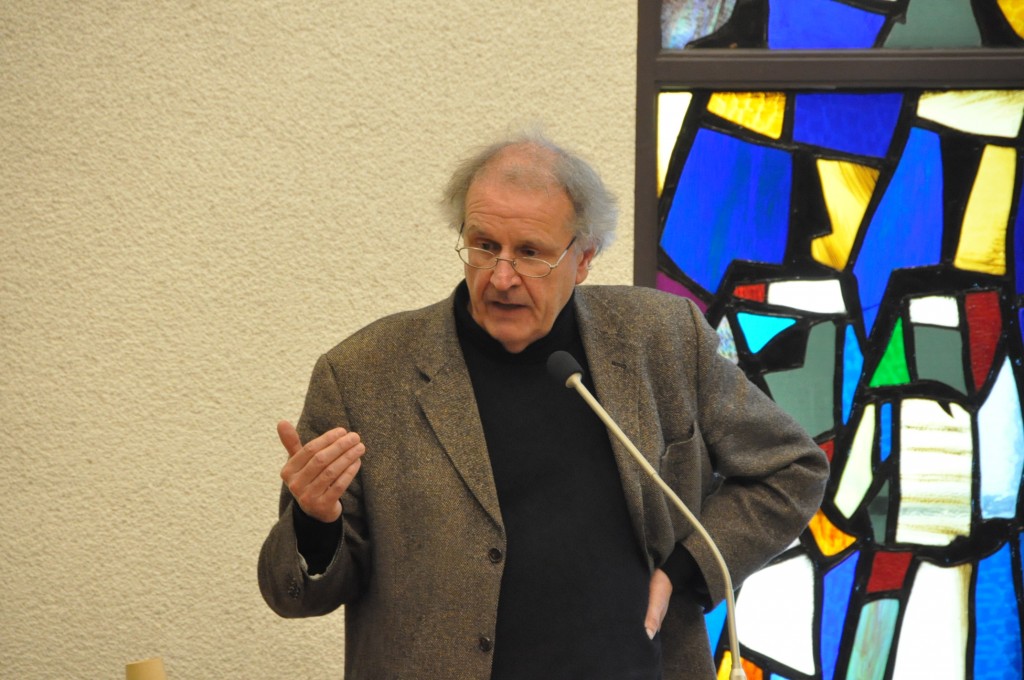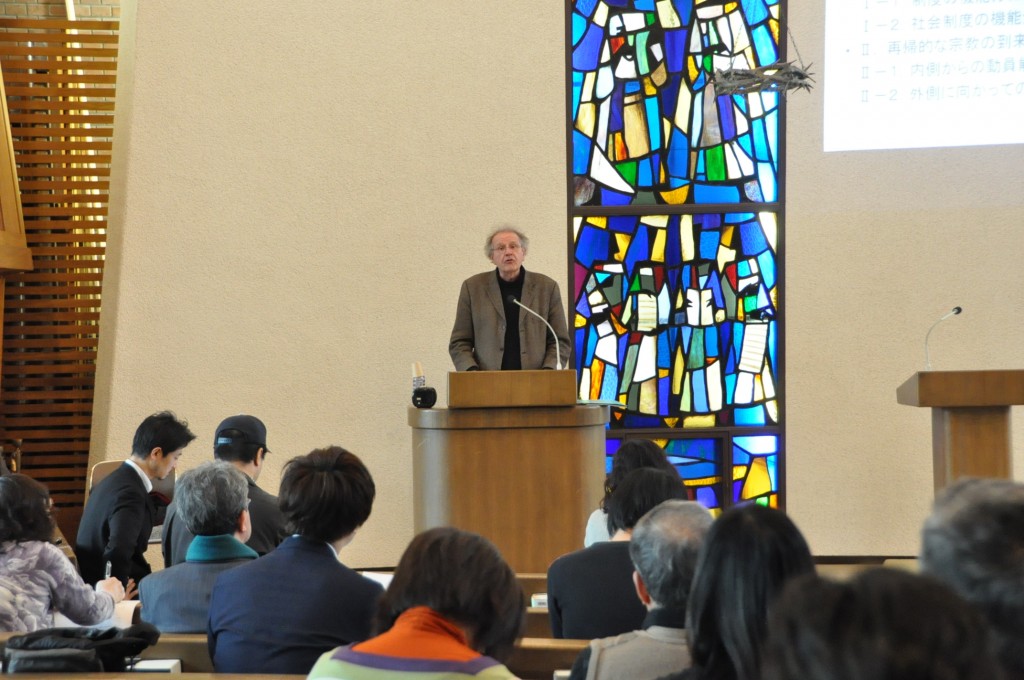Center for Interdisciplinary Study of Monotheistic Religions(CISMOR)Doshisha University
> Public Lectures > Catholicism in French SocietyPublic Lectures
Catholicism in French Society
| Date: |
2017/03/03 17:00-19:00 |
|---|---|
| Place: | Divinity Hall Chapel, Imadegawa Campus |
| Lecture: | Philippe Portier (EPHE, Paris ) |
| Summary: | |
|
In the later half of the 1970s, the medieval historian Jean Delumeau argued that the rejuvenation of Christianity was still very much possible in the future. By contrast, the historian Michel de Certeau elaborated on the “beauty of the death of Christianity” while asserting that Christianity is quickly becoming a myth of the past. He argued that Christianity can only be described as a remnant of Western civilization. Certeau predicted that those who understand Catholicism would eventually disappear. The sociologist Danièle Hervieu-Léger took up Certeau’s approach in the beginning of the 2000s and pointed out that the number of parishioners are in serious decline. This crisis of faith is reflected in the departure of Westerners from their Christian cultural roots. Furthermore, he claimed that the values and lifestyle of Christian civilization have nearly been obliterated. On the other hand, recent demonstrations against same-sex marriages indicate that the universality of the Catholic teaching is still alive. In this lecture, we will discuss how to overcome the polarization of these social values. It is not a question of whether Catholic values should be resisted or dismissed as vestiges of the past. The Catholic environment in France was formed under the organic agrarian environment of the medieval village. In former days, the Catholic church encompassed believers and the entire society that revolved around the village. Thus, they were able to impose their rules and regulations. However, Catholicism today has become more subjective and is influenced by multiple social factors that reflect the complexities of contemporary life. In the first half of this lecture, Prof. Portier explained how inclusive religion as a whole is in decline. The church used to divide its authority between the center and periphery. Although this has not changed, the level of influence that religion plays on politics varies between the cities and the periphery. Prof. Portier explains that from the 1960s, French society entered the second phase in which individualism is emphasized, and the state and religion took on separate functions. These divisions occurred as a result of the production and distribution of laws and legal codes. Since religious values and regulations became subordinate to secular laws, the Catholic culture which had persisted for centuries was dismantled. The decline of Catholicism has been confirmed by Catholic believers themselves as the number of worshipers who belong to a church continue to decline annually. Statistics confirm these findings. Many believers claim that they cannot agree with the Catholic teachings. One can argue that the priests are finally unable to oppress the rural populace, but as Prof. Portier suggests it is overly simplistic to claim that religion is empty and therefore Catholicism will continue to decline. This may be a time for a resurgent mechanism that to lay dormant before it begins to operate again. One needs to be aware that the performance of politicians which legitimizes religion (external influence) and Catholic activism (internal mobilization) that became possible after the reforms of the Second Vatican Council can both play significant roles. Prof. Protier claims that the present circumstances are creating a new kind of Catholic structure that will attract followers. Catholicism in France is no longer something imposed but can be freely adopted and embraced depending on the circumstances. In times of uncertainty, Catholicism can be relied on to stabilize the individual while offering spiritual encouragement. It has also formed the backbone for public measures that are carried out by the state. Translated by Jonathan Augustine (Ryukoku University) |
|
|
*Admission Free, No Reservation Necessary. *Lecture in French , interpretation will be provided. |
|
|
20170303poster |
|

